Business
Pool Nation Spotlight Alicia Stephens
When Alicia Stephens walked through the door at a recent Pool Nation Boot Camp in McKinney, she had an enthusiastic group waiting for arrival. On this day, March 1, it happened to be her birthday, and a small group of pool executives met Stephens with lots of hugs, smiles and a cheerful rendition of “Happy Birthday.”
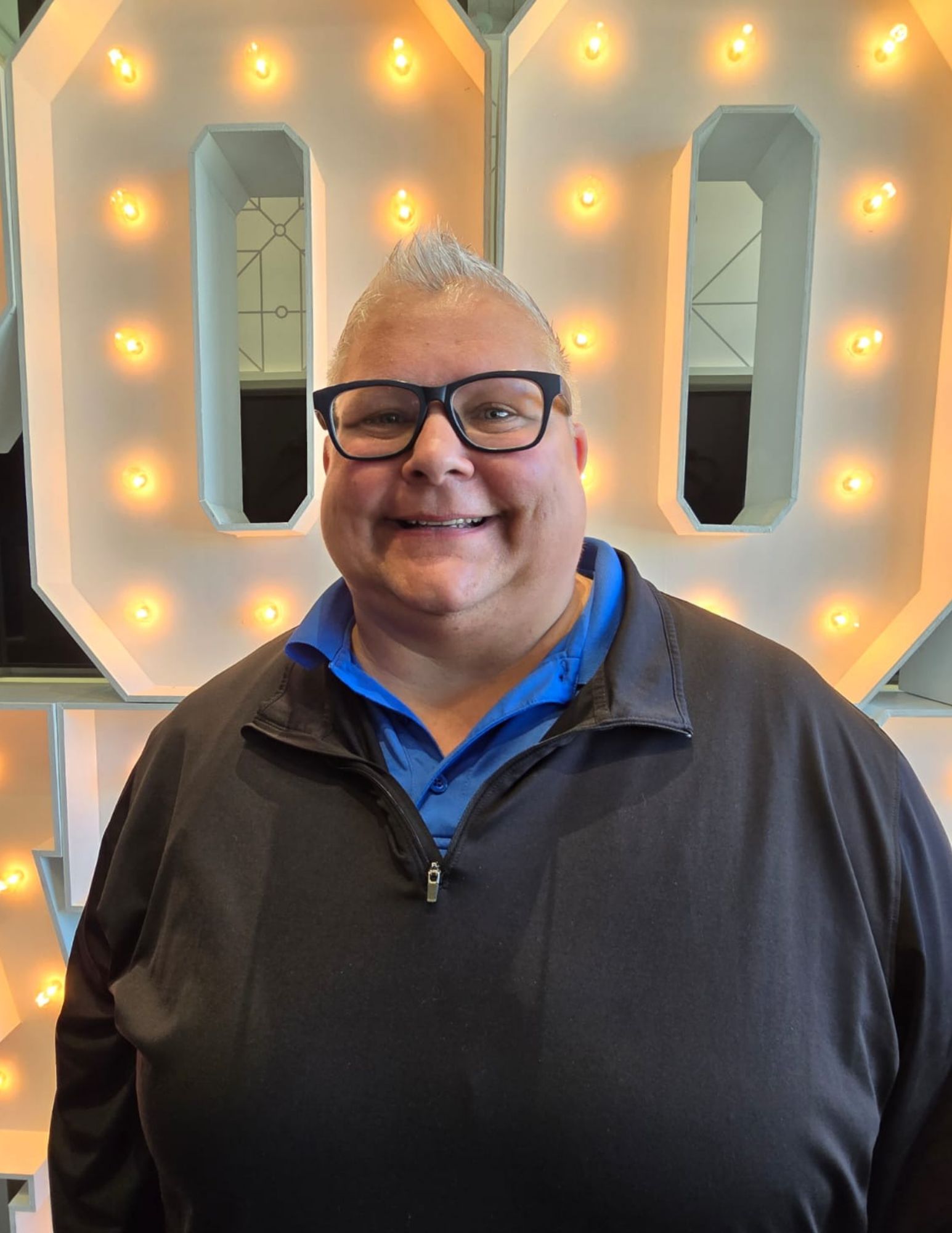
When Alicia Stephens walked through the door at a recent Pool Nation Boot Camp in McKinney, she had an enthusiastic group waiting for arrival. On this day, March 1, it happened to be her birthday, and a small group of pool executives met Stephens with lots of hugs, smiles and a cheerful rendition of “Happy Birthday.”
If the pool industry has a golden child or fan favorite – it is Stephens – a fact that surprises her more than anyone.
For years, Stephens didn’t believe she had a seat at the table, and her ascension through the corporate ranks required grit, tenacity and the fierce advocacy of former colleagues who stood in the gap and championed on her behalf.
Despite feeling initially overlooked in a male-dominated industry, compounded by being a minority, her love for teaching pushed her toward purpose. Now, she’s on a mission to train and equip the next generation of pool experts
“Being accepted is probably the biggest accomplishment of my career,” Stephens shared. “At one time, I would have hated these experiences like Boot Camps and conferences, but now I realize these are my people. It’s much bigger than work; we are united by a deeper bond. They don’t care that I’m a woman. They think I make funny analogies when I teach modern chemistry, and they laugh and remember that. That’s what they care about.”
Professionally, Stephens is now the Director of Training and Education for BioLab, based in the greater Atlanta area. She was recently named Pool Nation’s “Trainer of the Year” at the organization’s annual award program for her dedication and leadership excellence in training pool experts nationwide.
“That was probably the biggest moment I’ve ever had in my career because I felt like I belonged,” she explained. “I realized I have a place here, and I’m good enough to be here, and these people want me to be here. I have arrived, I’m here. I remember saying several times that night, ‘I don’t ever want this day to end; I don’t ever want this day to end.’ It was the best day ever.”
Stephens joined BioLab in April 2000 after a chance encounter with a college recruiter opened a career door she didn’t even know existed (more on that later). She started as a temporary summer team member with BioLab and swiftly transitioned into a permanent position.
With over two decades of service, Stephens has trained countless individuals despite grappling with her own self-doubt and self-identity along the way.
Now, she’s on a mission to empower and uplift those who may feel they don’t conform to the pool industry’s traditional mold.
Most of all, Stephens is determined to inspire change and foster inclusivity
Q: Hi Alicia! Before entering the pool industry, can you share more about your life and childhood? What was it like growing up, and who was little Alicia?
Alicia: That’s a great place to start because it’s shaped who I am today. I’m a kid who came out of the Midwest, a small town in Illinois, and I only had 31 kids in my graduating class. So when I say that I lived in a small area, I did. I grew up on a working farm, and my uncle was the largest corn producer for Frito-Lay for a very long time. My parents divorced when I was five, and I have seven brothers and sisters. It’s exciting and always chaotic when I go home for Christmas. I grew up in a rural area and then went to undergrad at Millikin University in Decatur. I wanted to stretch my wings a bit; I was a homebody when I left and was growing. I got my undergraduate biology degree and initially thought I would attend medical school. I love science, and I wanted to finish my biology degree. Then everything changed one random day.
Q: I can feel the pause and suspense; is this next part good?
Alicia: Yeah! I was walking through the halls during my senior year, and this little older man was recruiting for something, but no one was talking to him. I felt terrible for him, so I stopped and asked what he was recruiting for, and he said “Georgia Tech” for one of their chemical engineering programs. I told him to give me the paperwork. As my senior year went on, I thought, ‘You know what, let me fill out this application and get the letter of recommendation.’ One thing led to another, and Georgia Tech offered me a full-ride scholarship to get my master’s degree. So I did, and in the middle of all that while living in Atlanta, I took a temporary job with BioLab, answering the phones
Q: What was your job?
Alicia: I started working as a minimum wage temp worker in their customer care department. They taught pool chemistry on a bare-bones basis, and I could answer the phones and tell people how to put products in the pools. I did that for three months, and they offered me a full-time position, and I took it thinking, ‘I’ll do this for a couple of years and then probably move back home and do something else.’ Well, 24 years later, I’m still at BioLab (laughs).
Q: When you mentioned the guy at your college recruitment event, that gave me the chills because that didn’t happen by chance. It changed the trajectory of everything.
Alicia: It was fate! For whatever reason, the fact that he was alone drew me to him. I was always the person who was an outcast, so I always pay attention to those who are alone. I did the same thing in school when people were sitting alone. So I stopped and talked to him for a few minutes, and it was fate. The important part of the story is that Georgia Tech is what got me to Atlanta and got me to BioLab.
Q: In the last 24 years, things have changed drastically for women in male-dominated industries, and stories like yours are a big part of that, bringing to light things women overcome each day. You were also a young person fresh out of college. What do you remember most about those early days?
Alicia: I’m going to be completely honest. I was 23 years old, living in a big city and coming from the cornfields of Illinois. I was trying to figure out who I was, and I went from trying to fit in a small town to moving to a big city where I didn’t have to. I was dating women for the first time, and that was hard for me, but it was fascinating at the same time. So I was going through that. I was working at my first corporate job and was learning the ropes there. At 23, I didn’t know anything about anything as far as life skills.
So, I was learning many things at once. So, my early struggles were about my own identity. I had purple hair and all these things going on, and BioLab just took it all in stride. There was never a moment that I didn’t feel like I could be me, whatever that was at that moment. So, I’ve always felt like I belonged from a company standpoint. I did that for about three and a half years (answering phones) and was very comfortable there. I love people, and I know science, so I was relaxed. And we have people who were hired the same day as I was who are still doing that job. I am not one of those people.
Q: Did you have great mentors or people who made a
difference in your work life?
Alicia: I credit three people with where I am today. One of them is David Rouse, who is still with BioLab. He’s our vice president of research and development now. He headed up our tech services group. We were the group in the middle who tested and made sure the product did what we said it did. We were product integration people. David recruited me. I said, “I’m not qualified,” he plucked me out of customer care and gave me more of a science position. I had a great time doing that, and we were out testing on actual pools. On my first day on the job, I was given a field trial on one of our new products, and he went out with me. I dumped the product and watched the entire bottom turn black. I was like, oh no! If he hadn’t been there, I probably would have phoned in my resignation (laughs).
So I did that for a while, and in the process, my group trained in new products. My first taste of that, and I was hooked on training. I loved it! I told David about it, and he gave me every opportunity to be a trainer. If there was a spot, he put me there to teach, and I honed my skills and got better at what I did. It was nice to be supported in that way, and I also felt like I wasn’t butting my head so hard against the male anarchy. People didn’t see me as a male or female but as a trainer, and it gave me a chance.
Women are still a minority in this industry, even though people like the team at Pool Nation are doing a great job of shining a spotlight on women. But back in those early days, I was pushing against the confines of being a minority in the business because there was still little diversity in the industry. So I was pushing against the confines of not having a look as a woman in a man’s world; I had none of that to work with, and it was not what I wanted. I was not going to make my way off externals.
Q: How did it all impact you?
Alicia: I felt that I was working at a disadvantage for a long time. I wasn’t getting invited to dinners because I’m not easy on the eyes – and I’m just being blunt now, but I want to tell the truth because someone else reading might feel that way. Pretty privilege does exist, so I just decided that I will become good at what I do, and you won’t be able to leave me out. That was my goal – people would not be able to leave me out.
So, as I developed this love of training, another David, who has since passed away, said, “I need you to be dedicated to my sales team.” He affirmed me, “saw” my worth, created a training role and moved me there. I wasn’t doing product testing anymore; I am always doing education now. That was the second big step in my career. He saw my passion and said, “Do it. Do it all the time.” He always saw past the externals and saw me as someone who knew how to train.” He shattered the glass ceiling for me a little; I hated that I needed him to, but he did. And once I got that role, I got outside the internal bubble and constantly started training. But I still felt like I was on the outside looking industry-wise, and I didn’t know much outside the BioGuard world.
Q: In 2019, right before the pandemic, BioLab acquired Natural Chemistry, and things changed again. You were working in the marketing department, but change happened again. Could you walk me through this transformation?
Alicia: I started working with a woman named Jamie Novak, and I’ve never seen someone want women to succeed like her. It was her passion. It started when we were getting to know each other. I had this woman who was a competitor, following me into classes, mocking me, and purposely asking questions to make me look bad.
So I told Jamie, and she said, “That’s not okay.” The next day, I was teaching, and Jamie came in and saw it happen. She marched up to her and said, “As women in the industry, we need to support each other and not tear each other apart.” So we bonded over that. Jamie left the company; she is back now, and on her way out the door, she told whoever would listen to give me the opportunity and pay I deserved. I don’t have the look of a woman in the pool industry, and I refuse to change myself, but at the same time, it inhibits my opportunities. I was excluded because I didn’t have the right look, and Jamie called attention to it all and she advocated for me. She was my champion in breaking down barriers. She fought for a promotion, respect and equality, and I’ll never forget that.
Q: Well, I just met you today, but I can tell you that people have kept talking about you all day, and you have a profound impact on others. Does that surprise you?
Alicia: Yes, and it always will. Usually, I would be nervous at these events, but today, I wasn’t even nervous because the Pool Nation guys made me feel so welcome. Two years ago, I would not have wanted to do this alone; I was scared that people would look at me funny and judge me for how I looked, and I didn’t have a place here. That would have been true anywhere but here because I always felt judged. However, what I have learned is that people aren’t judging me. They are learning from me, and those were my insecurities that I carried. They would chase me down, ask me questions, and beg me to keep teaching when the class was done, and so I realized, wait, people do care.
Q: They accept you completely; do you see that now?
Alicia: Yes, and being accepted is probably the biggest accomplishment of my career. At one time, I would have hated these experiences like Boot Camps and conferences, but now I realize these are my people. It’s much bigger than work; we are united by a deeper bond. They don’t care that I’m a woman. They think I make funny analogies when I teach modern chemistry, and they laugh and remember that. That’s what they care about.
The best compliment I ever received was last year teaching for Pool Nation. This group of three was in the second row, and one guy said, “Go get the rest of the group because it’s that lady!”
Q: That’s amazing! Edgar, told me that you got Pool Nation’s “Trainer of the Year?”
Alicia: That was probably the most significant moment I’ve ever had in my career because I felt like I belonged. I realized I have a place here, and I’m good enough to be here, and these people want me to be here. I have arrived, I’m here. I remember saying several times that night, “I don’t ever want this day to end; I don’t ever want this day to end.” It was the best day ever. It was just this feeling that, finally, someone saw me. It wasn’t about the awards, but they saw my heart, passion for what I do and that I loved to teach. I realized that I’m not the “not cool” kid anymore. I’m not the underdog and outcast anymore. I always felt like the one who wouldn’t get a seat at the table and would get overlooked, and that night, I felt like one of the cool kids.
Q: Well, before we go, outside of your career, who is Alicia? What are you passionate about? What do you do?
Alicia: I’m passionate about my family. I don’t have kids, but I have seven brothers and sisters, a pile of nephews and one niece. My goal in my life is to be the best aunt I can be. I have a passion for writing and just wrote my one-year-old nephew his own children’s book. For his birthday, I did another one, and I’m going to create a series. I wrote them and used software to put his face in all the characters.
I also have a passion for animals. I rescue cats more than I need (laughs). I love my friends, and we spend a lot of time just hanging out. I do a lot of DIY home improvement projects, buy furniture, refresh, and repurpose it. So, a lot of different things.
On behalf of the entire Pool Nation team, it was a pleasure to learn more about you, Alicia! Thank you for sharing your journey with us, and congratulations on profoundly impacting the community.

-
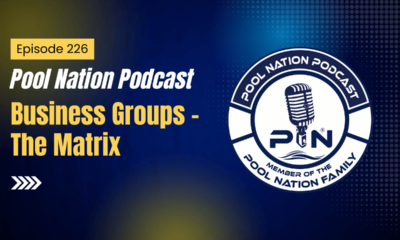
 Videos4 months ago
Videos4 months agoEpisode-226 – Pool Nation Podcast – Pool Nation Business Groups – The Matrix
-
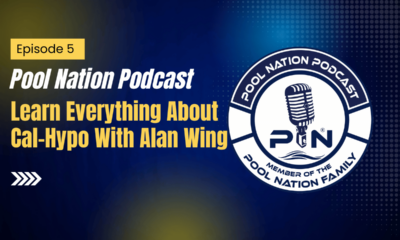
 Videos5 years ago
Videos5 years agoEpisode -5 Learn Everything About Cal-Hypo with Alan Wing on the Pool Nation Podcast
-
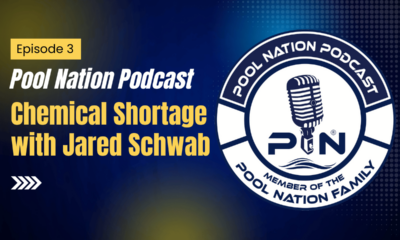
 Videos5 years ago
Videos5 years agoEpisode 3 – Pool Nation Podcast – Chemical Shortage with Jared Schwab
-
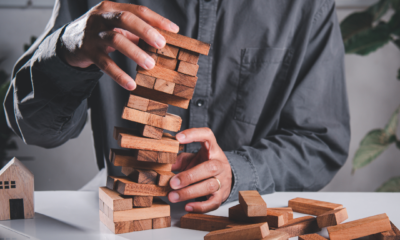
 Business11 months ago
Business11 months agoUnderstanding Common Reasons Why Businesses Fail and How to Avoid them
-
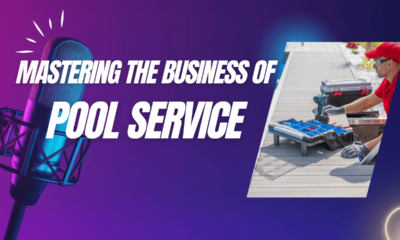
 Pool Pro-Service12 months ago
Pool Pro-Service12 months agoMastering the Business of Pool Service
-
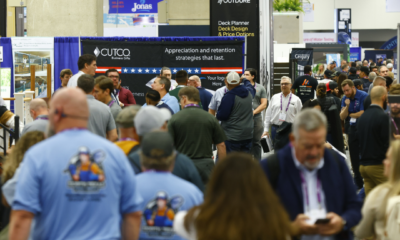
 Business3 months ago
Business3 months agoPSP Expo 2024: Thousands Gather in Dallas for Innovation, Education, and a New Era in the Pool Industry
-
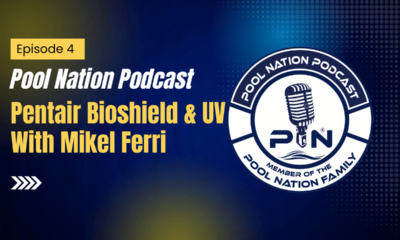
 Videos5 years ago
Videos5 years agoEpisode – 4: Pentair Bioshield & UV with Mikel Ferri Product Manager – Pool Nation Podcast
-
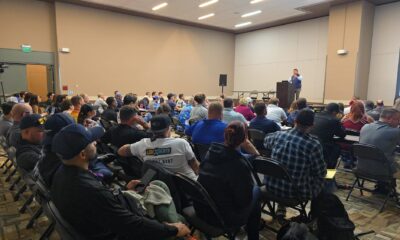
 Business3 months ago
Business3 months agoPool Nation Conference Debuts with Groundbreaking Education and Support for Pros



